- Do YOU have a story? Email sophie.carlin@mailonline.co.uk
By SOPHIE CARLIN, TRAINEE REPORTER
Published: | Updated:
A village has won its fight to save a £585,000 15th century cottage from being bulldozed by its owners to make way for modern ‘bland’ homes.
The home in Swanmore, Hampshire, which is known as ‘Hiawatha’, was put on the market last year by its previous owner, former company director Eric Abbott, 94.
He sold it on the condition it would be lived in by another family, who would cherish it as he had done, as his family home of more than 60 years.
But Hiawatha’s new owner, named Simon Smith, soon submitted an application to Winchester City Council to tear the historic property down.
He planned to build two modern houses on the site, with each boasting two storeys, four bedrooms, gardens and parking for three cars.
More than a thousand people signed a petition to stop the development, with a whopping 200 objections submitted in the public consultation period.
And Mr Smith’s application has now been refused by the council, which said the development would be ‘visually intrusive’ and ‘out of scale and character with its settings and surroundings’.
This would mean, it added, it would fail to ‘adequately conserve the identity of Swanmore’.
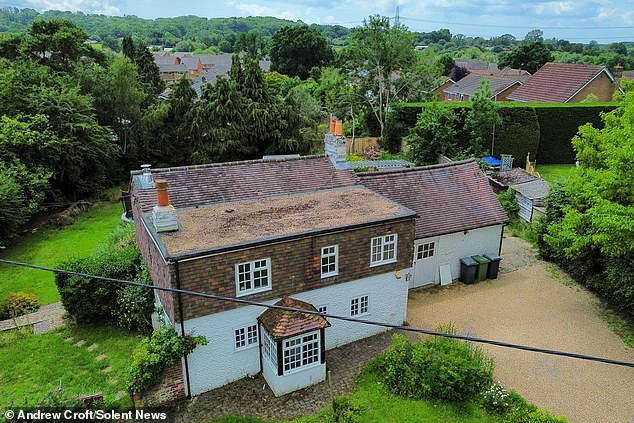
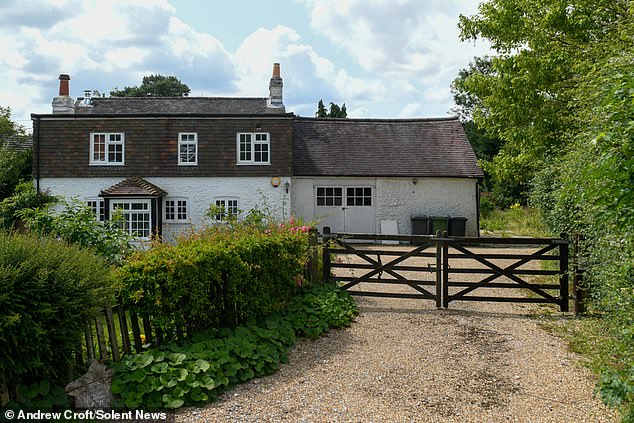
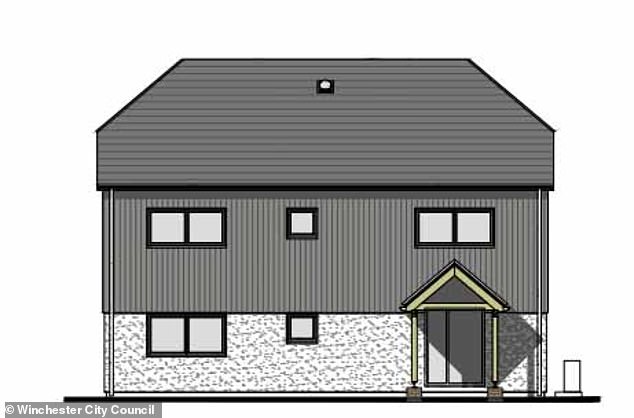
The historic village, which is mentioned in the Domesday Book, boasts some buildings which date back to the 16th and early 17th centuries.
Houses on the same street as Hiawatha – which has a long driveway, large blooming gardens and a charming whitewashed facade – cost an average of £800,000.
Julie Pinnock, the council’s corporate head of planning and regulatory services, continued: ‘The proposed development by virtue of its size, scale, design and external finish would fail to maintain or enhance the local character, appearance, built features or the variety of the local environment.’
She also noted the plan ‘fails to protect and enhance biodiversity’ locally.
It did not provide, she continued, ‘appropriate precautionary assessment or mitigation’ regarding the ‘increased recreational pressures’ the development would place on the area.
Ms Pinnock particularly noted the Solent Special Protection Areas (SPAs) – zones of the River Solent protected for the precious natural habitats there.
These areas are particularly valuable for certain coastal birds, which feed and rest there in the winter months.
She continued: ‘As a result, it is considered that the proposed development would result in significant harm to the SPA and the species it supports, therefore contravening the legal requirements of the Wildlife and Countryside Act 1981 and the Conservation of Habitats and Species Regulations.’
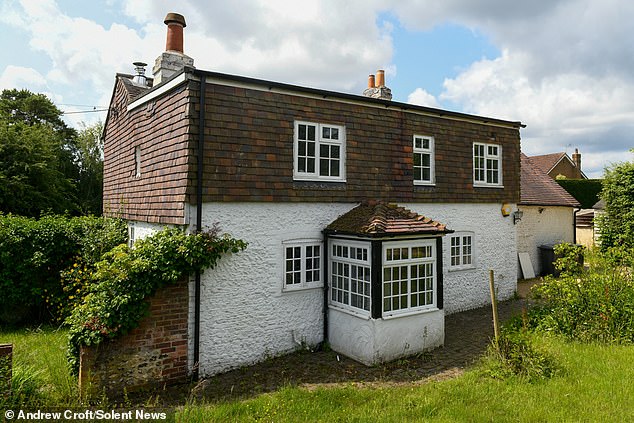
Campaigners have been determinedly posting flyers about the petition, which has 1,077 signatures, into letterboxes across the village.
The flyers said the cottage was going to be ‘flattened’ and replaced with ‘two modern, bland new-builds’.
Those against the development also thought the new homes would not fit the character of the village.
They also believed they would cause traffic problems on an already busy street which is around the corner from a primary school.
Mr Abbott’s objection to the planning application read: ‘As the previous owner of Hiawatha, I was totally dismayed to see the change of heart of the new owners attempting to destroy Hiawatha and replace [it] with totally unsuitable houses.
‘I instructed the estate agent to ensure my wonderful house was only sold to a family who would love it like I did and not destroy it.
‘The estate agent assured me that he had made this clear to the new owners and that they had agreed it to be their forever home which is all I ever wanted for another family to love it like I had for the last 64 years.
‘It seems they lied and were buying Hiawatha for financial gain.
![Mr Abbott's objection to the planning application read: 'As the previous owner of Hiawatha [pictured], I was totally dismayed to see the change of heart of the new owners attempting to destroy Hiawatha and replace [it] with totally unsuitable houses'](https://the-carrington.com/wp-content/uploads/2025/08/101043571-14983441-image-a-55_1754665420059.jpg)
‘I had been offered to sell to many builders and I declined as this house is part of history, it was there before Chapel Road was even made.
‘I would never have sold it had I known this was their intention and they knew that.
‘There is an ancient well that in the deeds, demands that it should be operable for future water shortages in the village and this was a legal requirement.
‘I believe Hiawatha was built in the 15th century. It is a beautiful flint cottage which should not be replaced with two identical newbuilds.
‘I feel it should remain standing and let the slow worms, birds, bats and many other species carry on living as they have been for many years.
‘I strongly object and do hope that this does not go ahead it would be a great shame to the wonderful village of Swanmore.’
Scientist David Hughes, 63, who lives nearby, said before the development was shut down he hoped he was not a ‘NIMBY’ for opposing the cottage’s demolition.
He explained: ‘I put in [an objection] saying I wasn’t very keen on it, hopefully not from a NIMBY point of view.
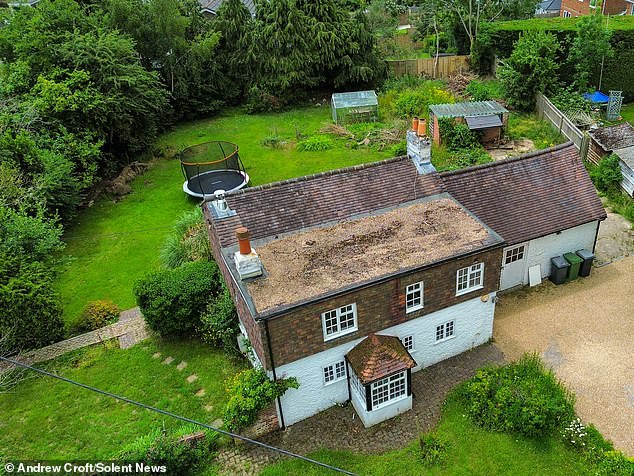
‘If we’re not careful, we’ll have a lot of new houses here.
‘It’s an unusual looking house, it breaks up some of the monotony of the architecture.’
But despite his own opposition to the development, he added he was surprised ‘how many other people were that bothered about it’.
Retiree John Allen, 79, said he thought the proposed two-house development was appealing to the council as it would bring in more council tax.
He noted: ‘The council [would] like it, wouldn’t it, more council tax, more money, that sort of thing.’
Of Mr Abbott’s agreement with the new owners to keep it a family home, he said: ‘A verbal agreement isn’t worth the paper it’s written on.
‘He should’ve got it done legally.’
A middle-aged female neighbour, who wished to remain unnamed, said she had signed the petition against the redevelopment.
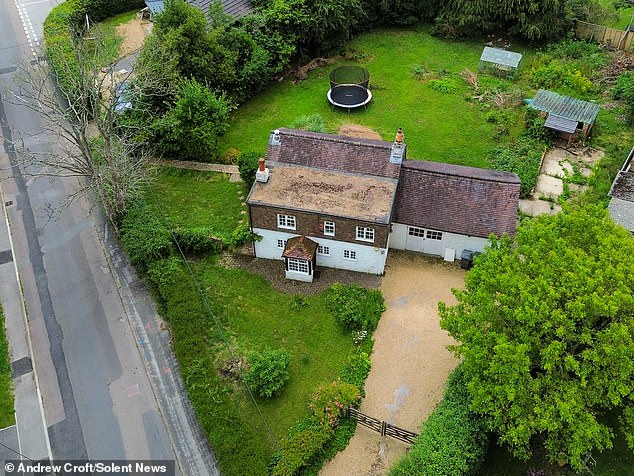
She said: ‘I don’t think it’s the prettiest building in the village but my main concern for it is if they put two properties in it.
‘The road is already abused enough with traffic, I know there’s three bedrooms [in each house].’
‘As we all know, if you’ve got three teenagers moved in, all of a sudden, you haven’t got enough parking.’
An elderly female neighbour, who also wished to remain unnamed, said it is ‘bad’ the new owners did not honour the agreement not to demolish the house.
‘That’s pretty poor, actually, I think,’ she said.
‘I mean, they knew what they were going to be doing with it – that doesn’t seem very honest.’
On the planning application, Historic England said there is no evidence to indicate that the building predates the 19th century.
It is believed to have been built between 1840 and 1868.
It said: ‘The building does not illustrate an important aspect of the nation’s history, nor does it have the historic associations with nationally important individuals, groups, or events, which might give it historic special interest.’
The new owners have a right to appeal the decision within the next six months.
They were approached for comment.








